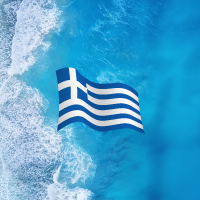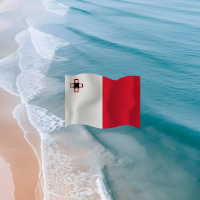
Recommended contact person
Cyprus has a well-developed shipping finance sector, with a range of financing options available to shipowners.
Some of the rules and regulations related to ship finance in Cyprus include:
- Legal Framework: The legal framework for ship finance in Cyprus is based on the laws and regulations of the European Union (EU), as well as domestic laws and regulations;
- Financing Structures: Cyprus allows for various financing structures in ship finance transactions. These include traditional financing methods such as bank loans and mortgages, as well as alternative financing methods like lease financing and syndicated loans. The legal framework accommodates different types of financing arrangements to meet the needs of shipowners and financiers;
- Tax Incentives: Cyprus offers a range of tax incentives for ship finance, including a tonnage tax system for shipping companies and exemption from capital gains tax on the sale of ships or on the sale of shares in a shipping company;
- Security Documents: In order to secure financing, shipowners will be required to provide security documents, such as a mortgage over the vessel or a pledge over the shares of the owning company;
- Regulatory Compliance: In order to comply with regulatory requirements, shipowners may be required to provide financial information and undergo due diligence checks;
- Supervision and Regulation: The Central Bank of Cyprus supervises and regulates financial institutions that provide ship finance in Cyprus, ensuring that they comply with applicable laws and regulations.
Overall, the rules for ship finance in Cyprus are designed to facilitate access to financing while ensuring compliance with applicable laws and regulations. Shipowners are advised to consult with AGP Law shipping team to ensure that they understand the requirements and options available to them.
The Legal Framework: The legal framework for ship finance in Cyprus is based on both EU and domestic laws and regulations.
Some of the key legal instruments governing ship finance in Cyprus include:
- European Union Directives: Cyprus, as an EU member state, is bound by various EU directives relating to ship finance, including the Capital Requirements Directive (CRD IV), the Markets in Financial Instruments Directive (MiFID), and the Alternative Investment Fund Managers Directive (AIFMD). These directives establish a common regulatory framework for financial institutions across the EU.
- Cyprus Companies Law: The Cyprus Companies Law sets out the legal requirements for the formation and operation of companies in Cyprus. This law includes provisions relating to the registration of ships and the use of mortgages as security for ship finance.
- Merchant Shipping Law: The Merchant Shipping Laws regulate various aspects of shipping in Cyprus, including the registration of ships, the rights and obligations of shipowners and seafarers, and the operation of shipping companies.
- International Conventions: Cyprus adheres to international regulations and conventions governing shipping activities. This includes compliance with the International Maritime Organisation (IMO) regulations on safety, security and environmental protection, such as the SOLAS and MARPOL conventions. These legal instruments, among others, form the basis of the legal framework for ship finance in Cyprus.
In terms of ship mortgage in Cyprus, this is regulated by the Cyprus Merchant Shipping (Registration of Ships, Sales and Mortgages Law of 1963), as amended, and the Cyprus Companies Law, which governs the registration of mortgages over ships owned by Cyprus companies. A Cyprus mortgage includes a statutory mortgage and collateral deed of covenants.
Here are some key aspects of ship mortgages in Cyprus:
- Mortgage Registration: Once a ship has been registered in the Register, either provisionally or permanently, a mortgage may be created in order to secure a loan or other financial obligations on the terms agreed between the relevant parties. To register a mortgage over a ship in Cyprus, the mortgage instrument must be executed in writing and registered with the Registrar of Cyprus Ships. The mortgage registration process typically takes a few days to complete. Pursuant to the Cyprus Companies Law, Cap. 113, as amended, if the ownership of the vessel on which a mortgage was created is registered in the name of a company which has been incorporated under the laws of Cyprus, the mortgage must also be registered with the Registrar of Companies. Therefore, the mortgagee’s security is protected in the event of liquidation of the said company;
- Mortgagee Rights: A mortgagee (i.e., the lender) has the right to enforce the mortgage and recover the amount owing in the event of default by the mortgagor (i.e., the borrower). The mortgagee may also seek to have the ship arrested in order to secure its claim;
- Priority of Mortgages: The priority of mortgages in Cyprus is determined by the order of registration with the Registrar of Cyprus Ships. The first mortgage registered has priority over subsequent mortgages;
- Mortgage Discharge: A mortgage may be discharged by mutual agreement between the mortgagor and the mortgagee, or by order of a court. The mortgagee may also release the mortgage upon receipt of the full amount owed under the mortgage;
- Foreign Mortgages: Cyprus recognizes foreign ship mortgages, provided that they are registered with the relevant authority in the country of origin and are executed in accordance with the laws of that country;
- Mortgage on a Foreign Ship: Cyprus law does not allow the creation of a mortgage on a foreign ship which flies the Cyprus flag under the registration of a bareboat charter;
The Cyprus Ship’s Registry is open to the public. However, only physical searches at the Registry are permitted upon the payment of a search fee.
Overall, ship mortgages in Cyprus provide a secure and efficient means of financing ships, with clear rules and procedures for registration, enforcement, and discharge. Shipowners seeking to obtain financing through ship mortgages are advised to consult with AGP Law shipping team to ensure that they understand the requirements and options available to them. Drafting a ship mortgage agreement requires specialized legal knowledge and expertise in the area of maritime law.
You may email us directly at agp@agplaw.com with all of your enquiries, which will be treated with full confidentiality at all times.
The information provided by A.G. Paphitis & Co. LLC is for general informational purposes only and should not be construed as professional or formal legal advice. You should not act or refrain from acting based on any information provided above without obtaining legal or other professional advice.














